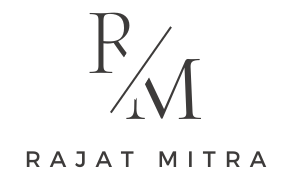“The education of every Jewish child begins by knowing about the concentration camps.” The year was 1997 and this statement was made to me by a Jewish psychologist as we sat and talked on the sidelines of the conference on psychological trauma.
“It has made us a race like no other,” he continued. “Not only that, we make it sure that the Germans and their children are not allowed to forget that. Not just them but the rest of the world too. There was a massive effort to cover that up and we realized if they succeed, it will be a death knell for all Jews. It was not revenge for us but survival.”
He shared with me an incident. While growing up in Sweden, when he was seven years old, a boy in his class had asked him if he wanted a candy. Lonely and desperate to make friends, he had said yes and extended his hand. That boy had spat on his hand and said that is what Jews get when they ask for candy. The rest of the class had laughed. “When I came home crying my father on that day stayed awake with me and told me about Jewish history and identity.”
Every Jew can tell you an incident like that from his life and his preparation for a life where he is a survivor. “It is very depressing to be a Jew and we learn that we have to give it a meaning to survive.”
Jewish psychologists are regarded as one of the best in the world in a number of diverse fields such as trauma research, education and terrorism. Listening and talking to them is always a learning experience so we continued.
“How, as a race, are you so creative despite so much trauma?” I asked.
He smiled. “A lot of people ask us that. The trauma is the reason for creativity. We have converted our trauma in a creative force like no other race. We as a race are always on the edge. We are always on the fringe and it is not just today. It has been there for two thousand years. Ever since then every Jewish child knows that he will never be a part of the larger society around himself. He is for himself and the only people who will not betray him is a Jew.”
“We are survivor personalities,” he continued and then asked me a question, “you Indians too have survived so much, invasions, colonialism and slavery? Why haven’t you become survivor personalities like us?”
I said, “I don’t know.”
“I have an understanding of that,” he said. “It is the way you teach your children. You don’t teach them that part of the history where you fought and struggled. You don’t teach them sacrifices, martyrdom and make them a central part of your history. You have made them your heroes who neither fought for you nor gave you the country you have today. Why is it that you have those people as heroes when they were so passive and even harmed your interests and spoke against you? I was surprised when I read about your first Prime minister. He was almost ashamed to be called a Hindu and an Indian?”
“Do you realize they won’t be heroes in any other country? They made your country passive. You are holding on to their image refusing to see how much it harmed you. I travelled in India a couple of years ago and saw your race that is trying to find its voice. Hope you find it soon,” he said. “Most of the literature I found about India was so defeatist in nature,” he added.
“Very few people know outside how much the creation of the Jewish personality today has been a creation by psychologists through writing, introspection of understanding ourselves. Every aspect of our daily life is governed by psychology.”
We had to go for the next lecture. “Where do we as a race start?” I asked.
“Read about trans-generational trauma.” He gave me the names of a few books and asked me to read them. “Your race needs to write its own book like that.”
We took leave of each other after exchanging emails.
Today when our Prime Minister has gone to their country, I was reminded of that meeting long ago. In these years I have discovered how much Jewish people have used trans-generational trauma to make them the strong race they are today. I wish the same would happen for us now.

